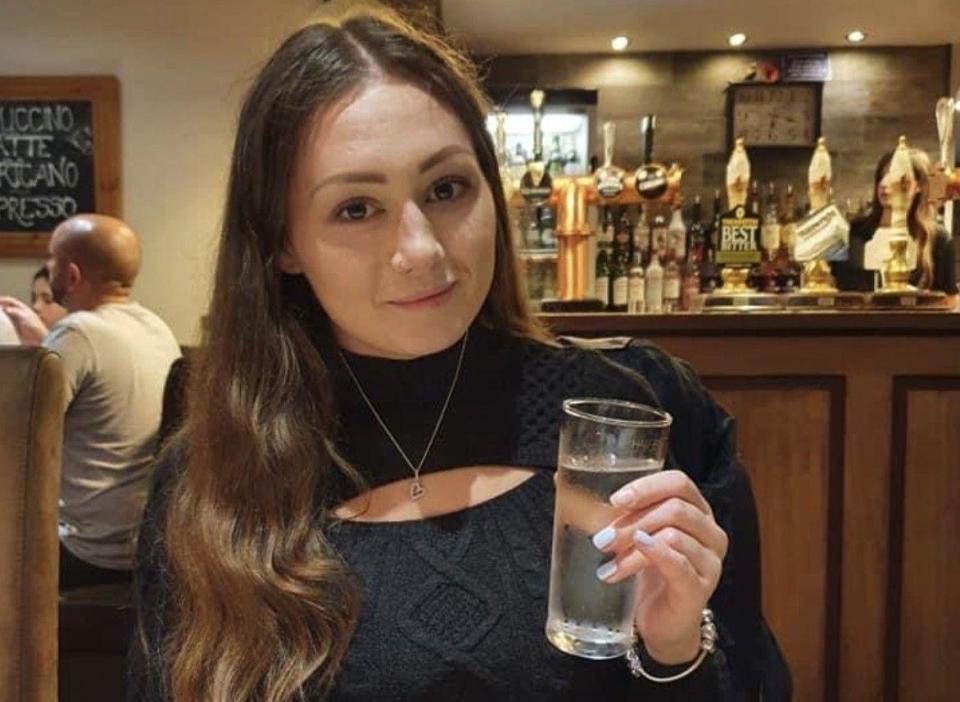Egg donor compensation will rise for the first time in more than a decade in the UK – but people should not donate just for the money, the fertility regulator has warned.
It is illegal to pay someone for your eggs in the UK, but compensation is paid to cover expenses. This will increase from £750 to £986 on October 1, partly to reflect the price rises.
The UK currently has a shortage of egg donors, particularly from black and minority ethnic backgrounds, the regulator said.
Yasmin Sharman was inspired to donate for the first time at age 18. “I realized there was a lack of donors of color and that upset me… and that made me want to do it again,” they said.
“I identify as a non-binary lesbian, so I thought that maybe I would have to take different paths to have children,” they explained.
Now 26, Mx Sharman has donated three times and shares her egg donation journey on TikTok. They said many of the comments focused on the fact that compensation was not considered sufficient.
“If we increase it too much, there is a risk that people will do it just for the money, which puts people on lower incomes at greater risk,” they said.
Compensation will rise for the first time since 2011, partly due to inflation, the Human Fertilization and Embryology Authority (HFEA) said.
“It’s rising to just under £1,000, which the HFEA felt was the right balance between compensating people for their time but really recognizing that in the UK, egg donation is a selfless act,” said Clare Ettinghausen, director of strategy and corporate affairs. at HFEA.
Donating just for the money should be accompanied by a “clear health warning” as there are “some dangers”, Ettinghausen added.
“It’s not without risk. You go through the first part of IVF treatment. It can be uncomfortable,” she added.
Donors are also informed that any children born from their eggs can try to contact them when they turn 18.
Egg donor shortage
Charlotte Holmes, 35, also shares her egg donation experience on social media.
She is currently going through the donation process for the second time for a couple who contacted her online.
“I give blood. I donate my hair. It’s something to me that seems excessive, especially when I don’t want kids,” Holmes said.
“The first time I donated was last year. I donated to the London Egg Bank and this year, after a couple reached out to me on Instagram, I’m donating to them.”
Holmes told the BBC that she will not receive any extra money from the couple – just the current £750 compensation from the clinic.
According to HFEA data, egg donation has remained roughly the same since compensation increased in 2011, but the demand for eggs has increased.
Ms. Holmes doesn’t think people should donate just for financial purposes, but hopes that increased compensation can help address the current shortage of donors.
“Does the extra £250 make much of a difference? Probably not,” Holmes said.
“If it opens the door for other women to earn ‘oh, £1,000’, is that a good thing? I think it’s because we’re desperate for egg donors,” she added.
This is a sentiment shared by Belle Brittle, 24, who donated her eggs last year.
“It’s an egg donation process, not an egg sales market,” Brittle said.
Adding that the increase in remuneration “is important”.
“It may motivate people to donate their eggs, albeit for financial reasons, but if it works to encourage people to at least think about donating, then it is important,” she said.

Some clinics hope the increased compensation will help address the shortage of egg donors.
“Increasing compensation for egg donors in the UK to £986 is justified as it better reflects the time, effort and medical risks involved in donating and helps address the current donor shortage,” said Dr Thanos Papathanasiou , chief executive and medical director. at the Bourn Hall fertility clinic.
“The donation process still requires a genuine personal commitment, so increasing compensation would not undermine the altruistic motivations behind egg donation, but would provide recognition of the donor’s goodwill.”
All egg donors receive counseling at clinics and must undergo several medical tests before they can donate.
In most cases, you need to be over 18 and under 36 to donate.
Approved donors can go through up to 10 rounds of donations, but more than 10 children can be born from the donation if multiple eggs are used by the same family.
“Really understand that it’s not something you do quickly and then it’s over,” said Yasmin.
“In 18 years, there is a possibility that a human being will contact you.”



















/cdn.vox-cdn.com/uploads/chorus_asset/file/25275361/246992_AI_at_Work_OBITS_ECarter.jpg?w=300&resize=300,300&ssl=1)













